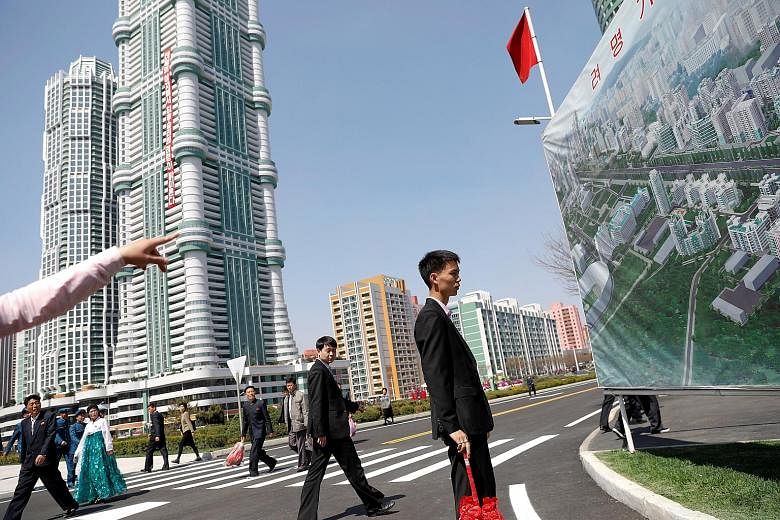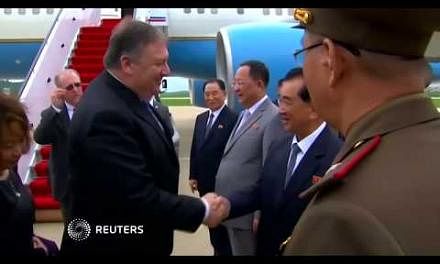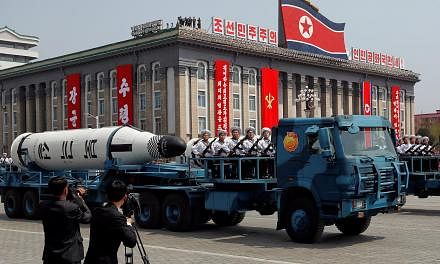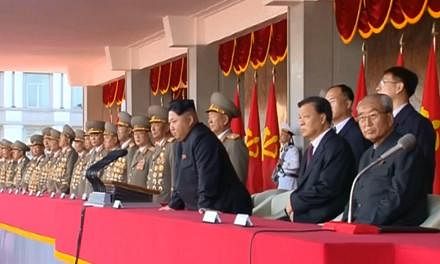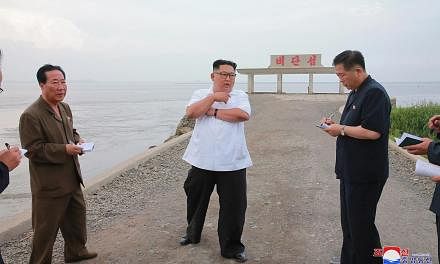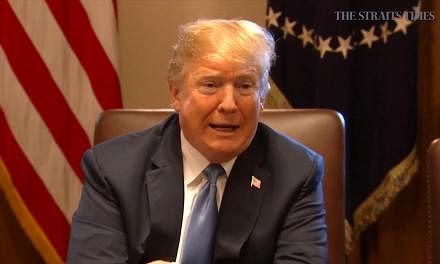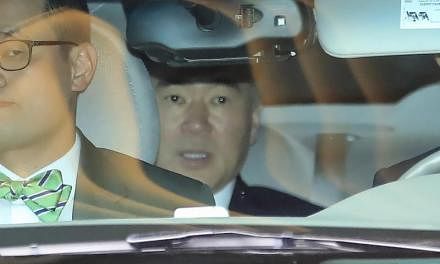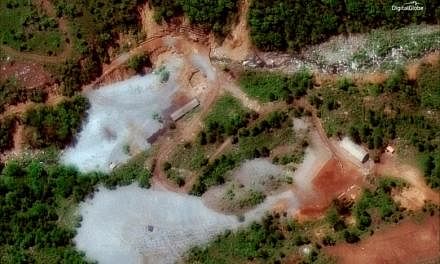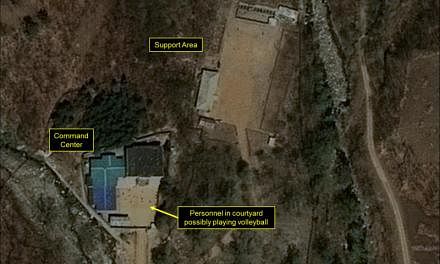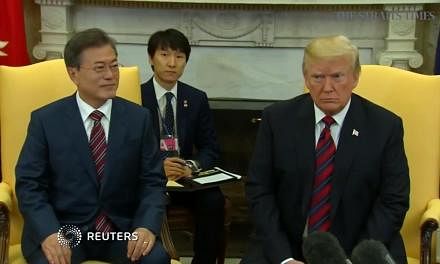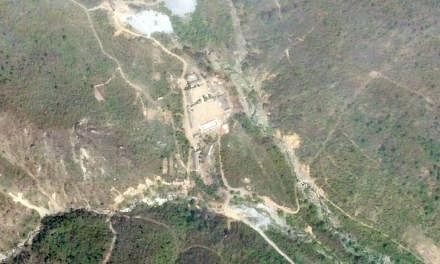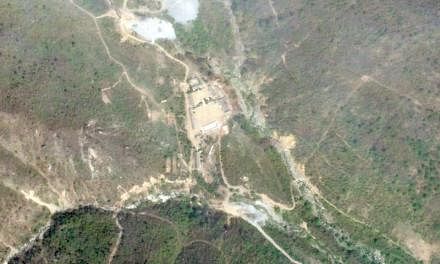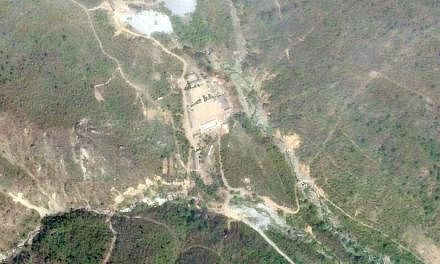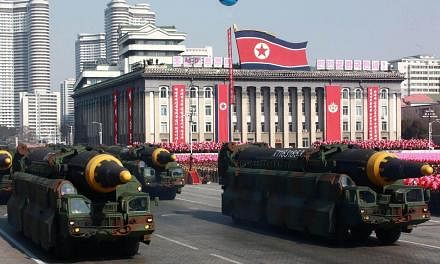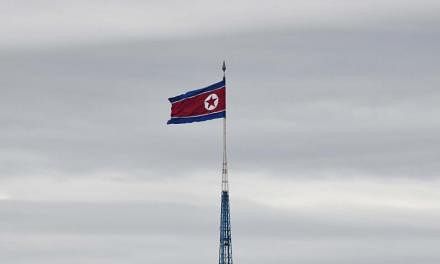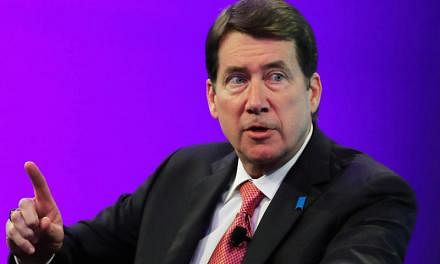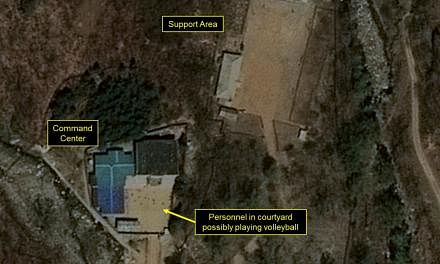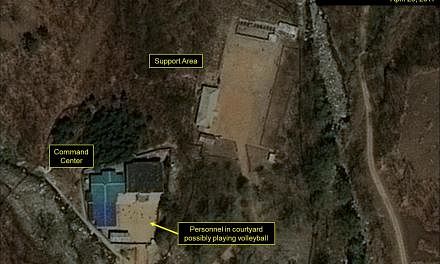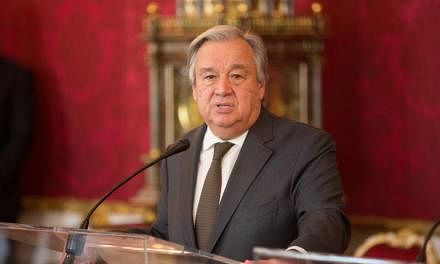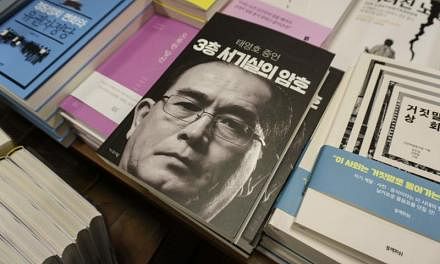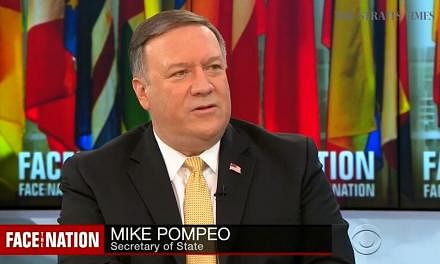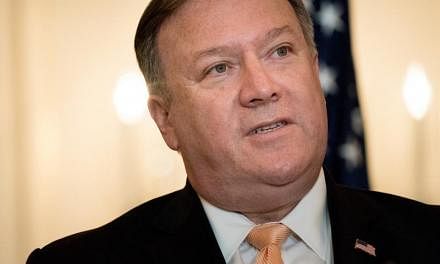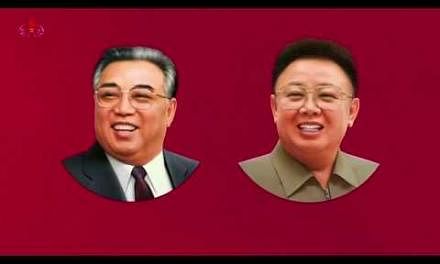SEOUL • A South Korean exhibition offering a glimpse into the life of the reclusive North has opened with a replica of a middle-class home in Pyongyang where the property market is booming, despite United Nations sanctions over its weapons programmes.
By all indications, cash is continuing to flow into ventures that are changing the North Korean capital's skyline despite international sanctions, helped in large part by leader Kim Jong Un's push to build a socialist utopia in the city.
"When Kim Jong Un took over in 2011, there was a significant focus on development of new infrastructure and housing estates for local Pyongyang residents," said Singapore- based architect Calvin Chua, who has visited Pyongyang seven times and designed the model.
"I was able to see parallel development of apartment houses that were developed by a joint venture investment between North Korea's local state company and foreign investors."
The opening of the exhibition in Seoul last Saturday comes amid heightened tension on the Korean peninsula after the North fired a missile that flew over Japan last month and two intercontinental ballistic missiles in July. Reclusive North Korea and the rich, democratic South are technically still at war because their 1950-53 conflict ended in a truce, not a peace treaty.
In the apartment, with North Korean music playing in the background, a lace throw covered a dark beige velvet couch alongside functional custom-made furniture in front of a flat-screen TV set. Large damask patterns on the wallpaper and vintage-looking lace curtains brought to mind the interior of a Seoul apartment in the 1980s.
"At first sight, this looks very much like an apartment unit that belongs to a North Korean anti-Japanese guerrilla fighter family which loyally upholds the Juche ideology," said Mr Choi Seong Guk, a Pyongyang native, referring to the national goal of self-reliance. He worked as a cartoon artist in North Korea before defecting to the South in 2010.
Exhibition curator Yim Dong Woo, assistant professor of urban engineering at Hongik University in Seoul, said the goal was to provide a glimpse into the life of a middle-class home in Pyongyang.
Initially built as a Socialist showcase with imposing monuments and monolithic Soviet-era structure, Pyongyang has seen a dramatic transformation in its skyline that now features modern architectural trends and street scenes, Mr Chua said.
New housing in high-rises is generally assigned by profession, often bringing scientists, professors and researchers under the same roof.
Although buying and selling of property is strictly banned, there has been a growing private trade in recent years, allowing those with money to move into better homes in more coveted locations, often by bribing officials, according to defectors and South Korean academics who study the North Korean society.
"Affluent Pyongyang residents who manage to accumulate wealth by doing business often bribe military officials and party members to move into better homes," said Mr Choi.
REUTERS
